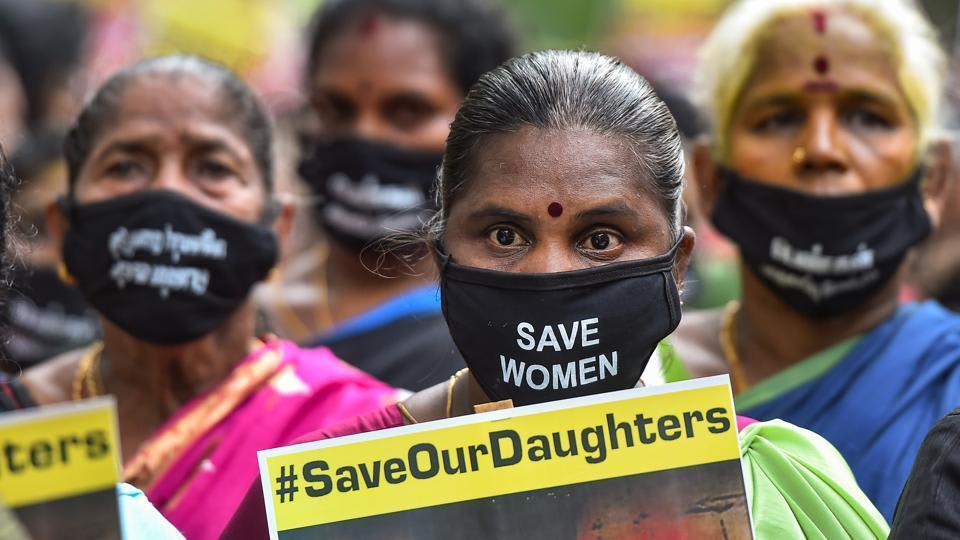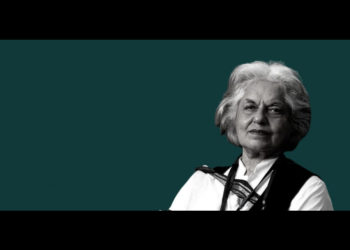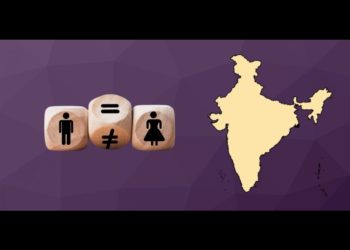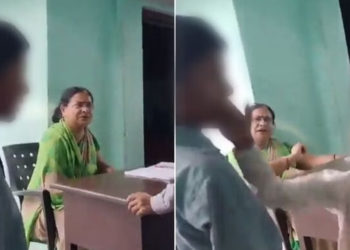
Sexual and gender-based violence in the domestic and social spheres is but a reflection of extremism in the public sphere, say Swarna Rajagopalan and Natasha Singh Raghuvanshi, in their paper on the subject in Extremism and Gender-based Violence in South Asia. The paper was published in November 2022 under the aegis of the International Movement Against All Forms of Discrimination and Racism and the European Union.
The paper states that while countries officially recognise only violence by political groups as extremist, there is extreme violence in sexual and gender-based relations also. “This is a pervasive reality in patriarchal societies like those in South Asia,” Rajagopalan and Raghuvanshi point out.
“India has infamously been declared one of the world’s most dangerous places for women. Deeply entrenched patriarchal beliefs and customs interacting with a rapidly changing socio-economic milieu, growing inequality and a state prone to regarding social and political mobilisation with mistrust have created a climate where violence at home and in public and official spaces is met mainly with silence and impunity,” state the researchers.
The study features case studies of four conflict-ridden Indian States, namely, Assam (Eastern India), Chhattisgarh (Central), Karnataka (South) and Kashmir (North). The period covered begins in 2000.
Some findings of the research across regions:
Assam: The state was embroiled in conflicts centered around ethnic rights and allegations of a massive influx of Bengali-speakers from neighboring Bangladesh. The conflict gave rise to terrorist groups and massacres, with the State retaliating in kind. These affected the domestic sphere too.
Between 2000 and 2020 “dowry” cases increased with a peak in the years before the pandemic. “Dowry deaths” (killings due to demands for dowry) also became more common. Reports of cruelty by husband’s relatives increased more than ten-fold in 20 years, registering a steeper increase since 2015.
Child marriage, a reliable indicator of social crises, increased sharply from 2015-20, going from 14 to 134 reported cases. In the same five-year period, gender-based violence in public spaces rose, with molestation cases almost tripling. Rape cases had more than doubled in these 20 years, registering a dramatic increase in the second decade.
In the early 2000s, a report on violence against women by the National Commission for Women (NCW) and Northeast Network stated that domestic violence was becoming more common and more acceptable and noted that the practice of dowry was beginning to gain ground in this region.
The state considered women as symbols of the resistance against it, while militant groups targeted them as spies. Thus, exploitative patriarchal structures and militarization together harmed and degraded women.
Chhattisgarh: The Central Indian state is home to an indigenous Maoist revolutionary movement dubbed by former Indian Prime Minister Manmohan Singh in 2006 as “the single biggest internal security challenge ever faced” by India.
A 2008 Planning Commission report on the causes of Left Wing Extremism (LWE) said that the “intensity of unrest resulting in extremist methods and efforts to resolve issues through violent means as a challenge to state authority is in response to the gathering of unresolved social and economic issues for long durations. It creates the impression that policy making and administration responds to extreme means.”
The 2008 report detailed the reasons for the appeal of the Maoist groups: “landlessness, traditional forest use rights and land acquisition (usually for extractive industries), internal displacement and forced evictions (“caused by irrigation/mining/industrial projects, resulting in landlessness and hunger”),
“loss of livelihoods (either due to the loss of homes, lands or to outsiders taking over), caste oppression and bonded labor, and finally, “non-governance” or “mal-governance,” under which rubric the report discusses harassment by forest officials, non-performance of duties, corruption and the lack of resolution.
In addition, the report talks about policing: “it is as frustrating an experience to go to the police station as a complainant as it is fraught with danger to go as a suspect. Women who go to a police station to complain of sexual abuse or domestic harassment are made painfully aware of this fact.”
A tell-tale sign of a crisis in gender relations in Chhattisgarh was the spike in child marriages in 2009. Child marriages and forced marriages become far more common when a community feels insecure about its future.
While romantic and sexual relationships were taboo within the cadres of the militant movement, women were expected to be silent about sexual predators in the interest of the revolutionary cause. Contrary to available evidence, the Ministry of Home Affairs (MHA) however continued to depict the situation in Chhattisgarh as a law and order problem.
Karnataka: The southern Indian state is now known for right-wing Hindu nationalist groups targeting minority Muslims and Christians. Among the southern states, Karnataka alone has the Hindu nationalist party, the Bharatiya Janata Party, in power.
The state has a rigid Anti-Conversion Law, on the basis of the allegation that Muslims seek to marry Hindu girls to convert them (so called ‘Love Jihad’). Christians are accused of attempting to convert Hindus through the promotion of ‘Western’ culture including celebration of Valentine’s Day.
Violence within the household rose steadily in Karnataka —peaking between 2009 and 2014. The most common type of violence reported was cruelty by husbands and relatives. Incest rape showed a sudden surge in 2015. Child marriage rose steadily between 2015 and 2020.
There is no evidence to link these changes to extremist activity directly. But what is clear is that the spread and influence of extremist ideas about a threat to “Indian culture” have created a climate of impunity where high levels of violence against minorities and women are normalized. In Karnataka, the misogynistic discourse in extremist politics is striking.
In January 2009, members of the Shri Ram Sene attacked young women and men at a pub in Mangalore, claiming it is against Indian culture for women to visit pubs. Young women ran as they were chased by a mob, slapped, kicked and dragged by their hair. As the terrified women tried to dodge the blows, some stumbled and fell and others were pushed to the ground. In 2018, a local court dismissed the case, despite video evidence of the incident.
In 2011, a fact-finding commission headed by Justice Michael Saldanha investigated incidents of violence against Christians in Karnataka from 2008- 2009. Justice Saldanha noted that in the 500 days between September 14, 2008, and January 26, 2010, a thousand attacks on churches took place in Mysore.
In December 2021, the People’s Union for Civil Liberties investigated and documented 39 incidents of hate crimes against Karnataka Christians that year. Identifying patterns in these attacks, they state, “Women and children are also at the receiving end of such physical assault. Hindutva groups use casteist, sexually explicit and derogatory language against women, and in cases where women have tried to respond to violence, they molest and sexually assault them.”
The anti-hijab mobilisation of early 2022 in Karnataka schools continues this narrative. Girls wearing the hijab are being prevented from attending classes.
Kashmir: The now Union Territory has been known for cross-border terrorism, indigenous militancy to ‘secure liberation’, and muscular state responses of various kinds, including downgrading the constitutional status of the state of Jammu and Kashmir. Allegations of sexual violence and intimidation of women had been made primarily against the army and paramilitary forces.
In the 1980s, religious extremist undertones of the militant movement for Azadi had repercussions for women in the form of the imposition of the veil. With the beginning of an armed insurgency, militant groups such as Jamaat-e-Islami, Tablighi Jamaat, Jamiat-e-Ahli Hadith and Allah Tigers ordered women to wear the burqa, a diktat enforced by the women of the Dukhtaran-e-Millat (DEM).




